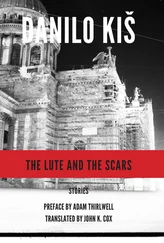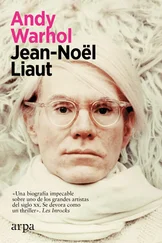After we finished wrestling, he dragged me to the base swimming pool and demanded that I teach him to dive from the highest board. He shook with terror. Again and again he walked to the edge with trembling legs, stopped, and sat down to think it over, unable to take the plunge. Eventually he climbed down, in despair. Those sweet guys in our class, mainly the veterans such as Umsh, Goldie, and Yakir, scorned him. They changed his nickname from ZBB, Zur Ben-Barak, to RBB—Run, Bloody Bastard.
But he passed the prisoner survival training with flying colors, and after that I saw him break the fear barrier.
It began with an accident. We already were flying Stearman biplane trainers, and one day ZBB taxied his plane a little too fast. He saw the other plane a little too late and was a little too slow to brake and crashed into it. The airplanes crunched together, their propellers flailing and sending cloth and pieces of wood flying. This was an unforgivable screwup, and nobody doubted that this was the end of ZBB’s career in the air force.
Saturday passed with fraying nerves. Zur hid in a corner under his blanket for the whole weekend, refusing to taste the food I brought him from the dining room. Suddenly he got up, pulled me to the swimming pool, climbed to the top springboard, closed his eyes, rolled in the air, and did a belly flop on the water. I understood; he wanted to die.
Next morning he was summoned to see the commander. He was judged and punished but not washed out. Later, because of his talents and strong character, he stood out more and more, and when we got our wings, Zur Ben-Barak was already known as a winner.
MY TURN CAME. I ROSE TO MY FEET and faced them all, blushing.
I was of medium height, very thin, and suffered a lot because of my round and childish face. I didn’t like myself. My hair especially irritated me: it was black and curly. Elderly ladies loved to pat it, so in protest I shaved my head. I most hated my eyes, inherited from my mother, Shosh, who got them from her father, Nathaniel. My younger daughter, Ella, looks at me with these same eyes. When I saw these eyes in the mirror, light-colored and vulnerable, they made me feel restless.
And now, exposed before Yak and all the Scorpions, I had difficulty saying anything. I was never the kind who found speaking easy. I always found the right words, but later, after time had passed.
At least I had a hero to remember: the amputee Soviet fighter pilot Alexei Merseyev. Many times I have dreamed of the moment when they all were waiting for his return from the fight for the motherland, against the Nazi Messerschmitts. I imagined the squadron commander spitting, “Enough. Merseyev is out of fuel. He is not coming back. Let’s go.” And right then, in total silence like a shadow, Merseyev’s aircraft arrived, gliding down, down, his propeller stopped. His airplane clipped the birch treetops and touched down on the first meter of the runway. But this was neither the place nor the audience to blab my dreams to. And I had no way to tell that like Merseyev within just a few short years, I would come back from air combat, my fuel tanks dry, dead-stick landing like a leaf on the first meter of a far-off runway. When I took my helmet off, two cuts would drip blood from where I had bitten through my lower lip.
Here I was, a mere second lieutenant, the new kid in school. My mother had taught me that things should be kept inside. One does not hang one’s laundry out in public. I chose to limit myself to absolute basics: name, rank, and serial number.
Zorik watched me, waiting. I added something in a low voice.
“What did you say? Give us something on you, Spector! And speak up!”
I repeated, “I came here to defend our country.”
They thought this was really funny. In the healthy roar of the laughter the investigation was all but forgotten. I flushed as I stooped to collect my file and hurried back to dive in among my friends. I dug into the box and found in it a notebook, a pencil, and two books: Aerial Combat by Yak Nevo, and Air Gunnery by David Ivry. This was the top wisdom of the air force, and for me—two worlds of knowledge, heroism and battle experience I had to make my own.
When I looked up again, I found those two figures themselves, bent over the table, watching me intently. Yak’s eyes were brown and pensive; Ivry’s pale blue, large and stern. Opposite them, Sam Khetz made a face and winked.
Then I relaxed. I passed the examination, and all would be well. And most important, everything had been kept inside.
Palmach (assault platoons): The strike force of the Hagana (Defense) organization .
Established in 1941, under threat of Nazi conquest of the Middle East. In the beginning Palmach was supported by the British Mandate government of Palestine, but later on it fought against it. During the covert years, Palmach boys and girls trained for half a month and worked in kibbutzim in the other half. Palmach emerged from the clandestine struggle as a commando force with clear battle doctrines and set values like love of the fatherland, comradeship, and purity of arms .
After the UN partition resolution of November 29, 1947, when the War of Independence broke out, the Palmach was the first force ready to fight the enemy. In the war, Palmach operated three brigades—Iftach, Harel, and Negev. Of the five thousand who served in Palmach, more than a thousand men and women fell. In November 1948 Ben-Gurion decided to dismantle Palmach, a controversial decision. Some of IDF’s chiefs of staff were former Palmach members, including Yitzhak Rabin, Haim Barlev, David Elazar, Mordechai (Mota) Gur, and Raphael (Raful) Eitan. The first commander of Palmach was Yitzhak Sade. When he was nominated chief of the Hagana, his deputy, Yigal Allon, replaced him. His vice was Uri Brenner. The adjutant officer of Palmach was Shoshana Spector .
THE EYES: THE FIRST THINGS you would have noticed when looking at Shoshana Spector. They were terrific eyes, bright and extremely intelligent. The wide pupils were surrounded with bright green, almost yellow irises, and the colored area all plowed with miniature labyrinths like tree-root systems, and speckled with tiny marks.
She lost me at Kibbutz Givat-Brenner.
She arrived at that big kibbutz in the autumn of 1951, three years after the War of Independence had ended. The struggle for the revival of the Jewish state was over—at least so they thought at the time—and the time was right to settle old scores. My mother, the number one woman in the Palmach, was sent for a year of study in America (she had hoped to establish a rehabilitation plan for handicapped veterans), and when she returned, she was fired. Apparently the newly organized Israel Defense Force didn’t need her and all the knowledge she’d accumulated. Like some of her comrades, she decided to try a new life in a kibbutz. This is how she showed up at Givat-Brenner, dragging behind her an eleven-year-old boy she didn’t really know.
Later she used to blame me, half seriously, for this decision. “The boy wanted to live on kibbutz,” she would complain, spreading her arms sideways, grinning as if hiding something. Perhaps she knew that the truth was that I did want to live on a kibbutz, but on a different one, Hulatta, which was on the other side of the country, where I had other parents.
HER MEMORIES FROM HER CHILDHOOD in Jaffa were sharp and colorful.
She liked to remember herself as a barefoot urchin running around the Arab market, cheeky and dirty, with two wild braids, which, when not washed with kerosene, were crawling with lice. In the winter, hot sahlab (a Middle Eastern pudding) was sold from a container carried on the back of the seller and poured out over his shoulder into a cup. In summertime there were cold, sour drinks such as suss and tamar hindi. All her life she longed for that Jaffa market that disappeared after the 1948 War of Independence, and she sought it in other markets. Sometimes she pulled me after her to the Carmel Market in South Tel Aviv, where she would pry and bargain and snoop into all the stalls, an olive here and a piece of salt fish there, and I shrank with shame hearing the vulgar language that suddenly came from this smart, sophisticated woman and the replies of the vendors. For her, this was romantic, although she herself was not romantic. Her Arabic, anyway, was always strong and convincing.
Читать дальше












